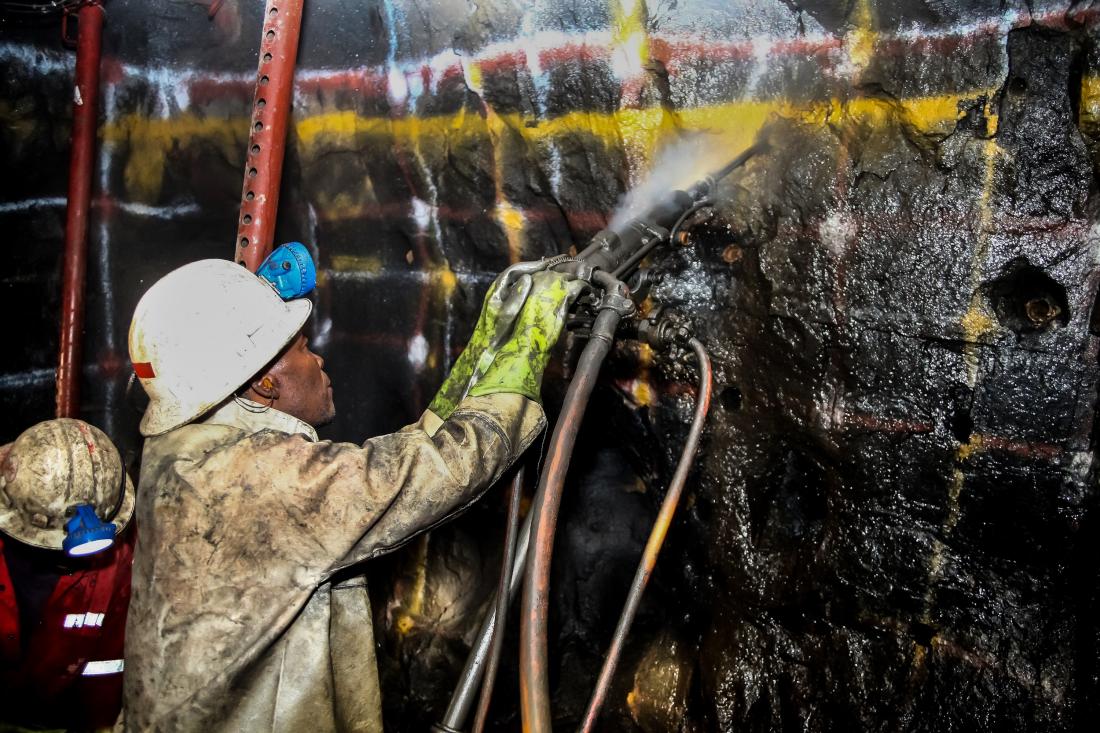Financial Training for Mineworkers in South Africa
- Migrants
- Remittances
- Savings/deposits
- Take-up of program/social service/healthy behavior
- Financial literacy
- Training
Financial access in South Africa has expanded rapidly in recent years and policymakers have identified financial education as a means to improve financial literacy and inclusion. To test this, researchers evaluated the impact of a financial literacy workshop on miners’ financial understanding, behavior, and use of financial services.
Problema de política pública
Financial access in South Africa has expanded rapidly in recent years, from 67 percent banked in 2012 to 75 percent in 2013. Yet despite a marked increase in access, policymakers and financial institutions have raised concerns about consumers' lack of financial understanding and good money management practices.
Distrust and unfamiliarity with financial services may hamper financial inclusion efforts. To combat this, South African financial service providers have committed to the Financial Sector Charter, which requires financial institutions to contribute 0.2 percent of after-tax profit to financial education. Financial education may improve knowledge about financial services and good money management, attitudes towards financial services, and even improve financial behaviors such as saving, remitting, and budgeting. However, to date there has been little rigorous evidence supporting financial education's effectiveness in improving consumers' financial literacy and behavior.
Contexto de la evaluación
Researchers partnered with Goldfields mining company to study the impact of financial education on a subset of mine employees. Most of Goldsfields' miners are migrant workers from low-income areas in and around South Africa. The majority have at least one household dependent on them for financial support from afar. On average, miners who participated in this study had 8.3 years of education and an 86 percent literacy rate. Of those surveyed, the average miner had 3.1 children and monthly earnings of US$525—around 27 percent more income than the average South African.

Detalles de la intervención
Researchers conducted a randomized evaluation to test the impact of financial literacy trainings on financial knowledge, financial service use, savings, debt, and remittance behavior, mental well-being, and work attendance. In partnership with Ubank and Ikhumiseng Consulting, researchers randomly offered financial education workshops to Goldsfield miners at three of its operations.
Of a total 11,719 miners, researchers randomly assigned 5,447 to receive invitations for financial literacy training and 6,272 to serve as the comparison group. To evaluate whether miners living together benefited from one or more miners attending trainings, researchers weighted invitations towards those living in group apartments. Among miners living in group apartments, some invitations were extended to almost all miners living in an apartment, while in other group apartments researchers invited less than half of the miners living there. The training consisted of two days of on-site education specifically catered to miners' abilities and needs. Small and interactive sessions were conducted in common languages, and included activities such as board games and role playing.
From 2009 to 2011, researchers collected employment data from Goldfields and financial information from Ubank to understand potential effects on absenteeism and financial service use, respectively. Researchers also conducted baseline and endline surveys for 1,100 individuals to gather basic information on demographics and financial behavior information.
Resultados y lecciones de la política pública
Study ongoing; results forthcoming.

